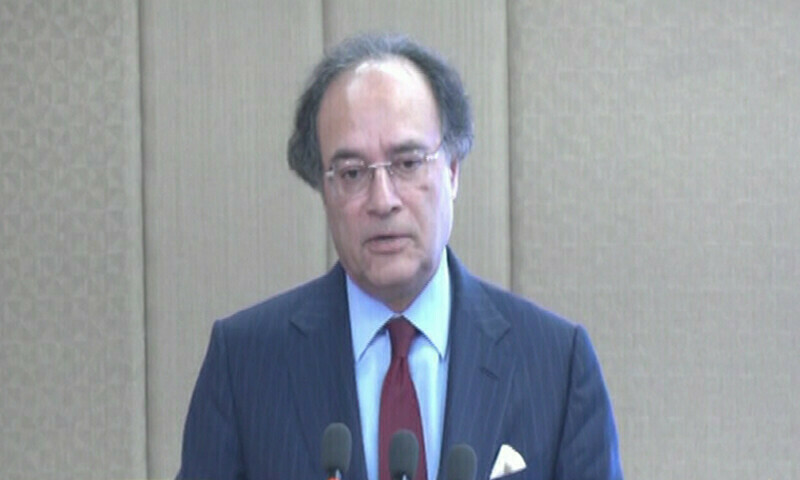By Staff Reporter
ISLAMABAD: The government remains committed to implementing structural reforms mandated by the International Monetary Fund (IMF), Finance Minister Muhammad Aurangzeb said, as the country sees signs of economic stability.
“We’re very committed to the IMF’s structural reforms,” Aurangzeb said at the inaugural ceremony of the Buna-Raast Connectivity Project in Islamabad. “The fund will help bring further permanence to this macroeconomic stability.”
A day earlier, the finance minister said the country is making progress on a new $7 billion IMF loan program, targeting September board approval. The comments followed the release of the IMF’s Executive Board meeting schedule until August 28, from which Pakistan’s name was absent.
The surprise move has raised concerns about the loan’s disbursement timeline and the possibility that the loan may be delayed, just as Pakistan’s economy is struggling to stabilize. A staff-level agreement between Pakistan and the IMF was reached on July 12, but the board’s approval is still pending.
The 37-month Extended Fund Facility program is designed to shore up Pakistan’s economy, boost foreign reserves, and tackle fiscal challenges. However, without the IMF board’s formal approval, the country’s financial outlook remains precarious.
The EFF loan is crucial for addressing Pakistan’s external financing needs, estimated at $26.2 billion for the fiscal year to June 2025. A $3-5 billion financing gap remains, despite the July 12 staff-level agreement.
Aurangzeb highlighted the importance of addressing the informal market’s significant share of remittances, emphasizing the need for further action. “We must do more to sustain this positive growth trend,” he said, noting the 11 percent year-over-year growth in workers’ remittances in the last fiscal year.
The finance minister stressed the importance of digitization in reducing economic leakages, which he described as a key priority. “Digitalization is not an end in itself; it’s a means to an end. It brings transparency, client friendliness, and helps reduce leakages in the system,” he said.
Aurangzeb acknowledged that leakages persist in the tax and power systems, attributing them to corruption and the need for improved processes and technology. “We call it leakages, but all of this is ultimately about corruption and people, process, and technology,” he said.
The government’s economic policies are yielding results, with macroeconomic stability taking root in Pakistan’s economy, Aurangzeb said. He cited indicators such as currency stability, increasing foreign reserves, and improved ratings by international institutions.
Copyright © 2021 Independent Pakistan | All rights reserved




